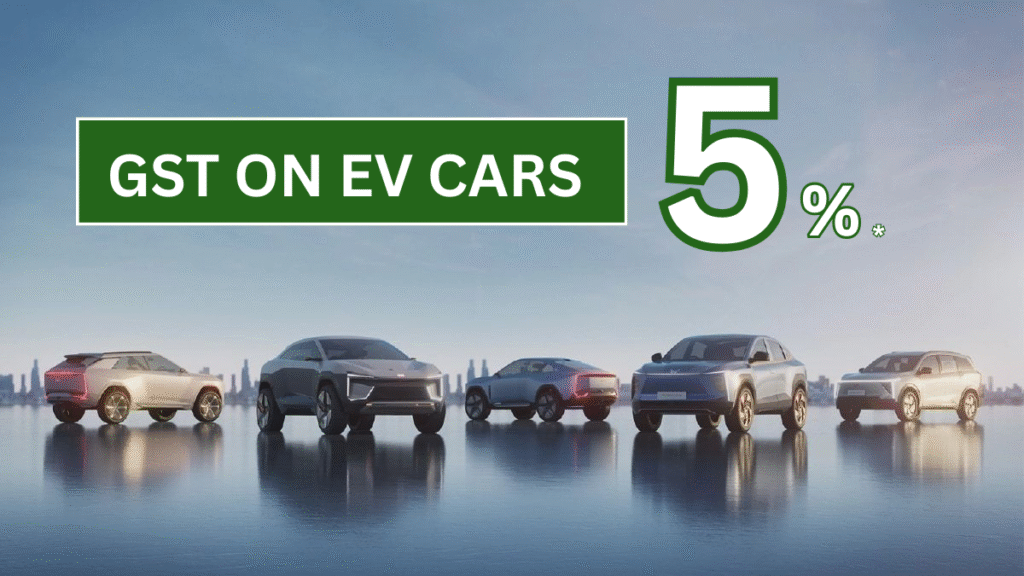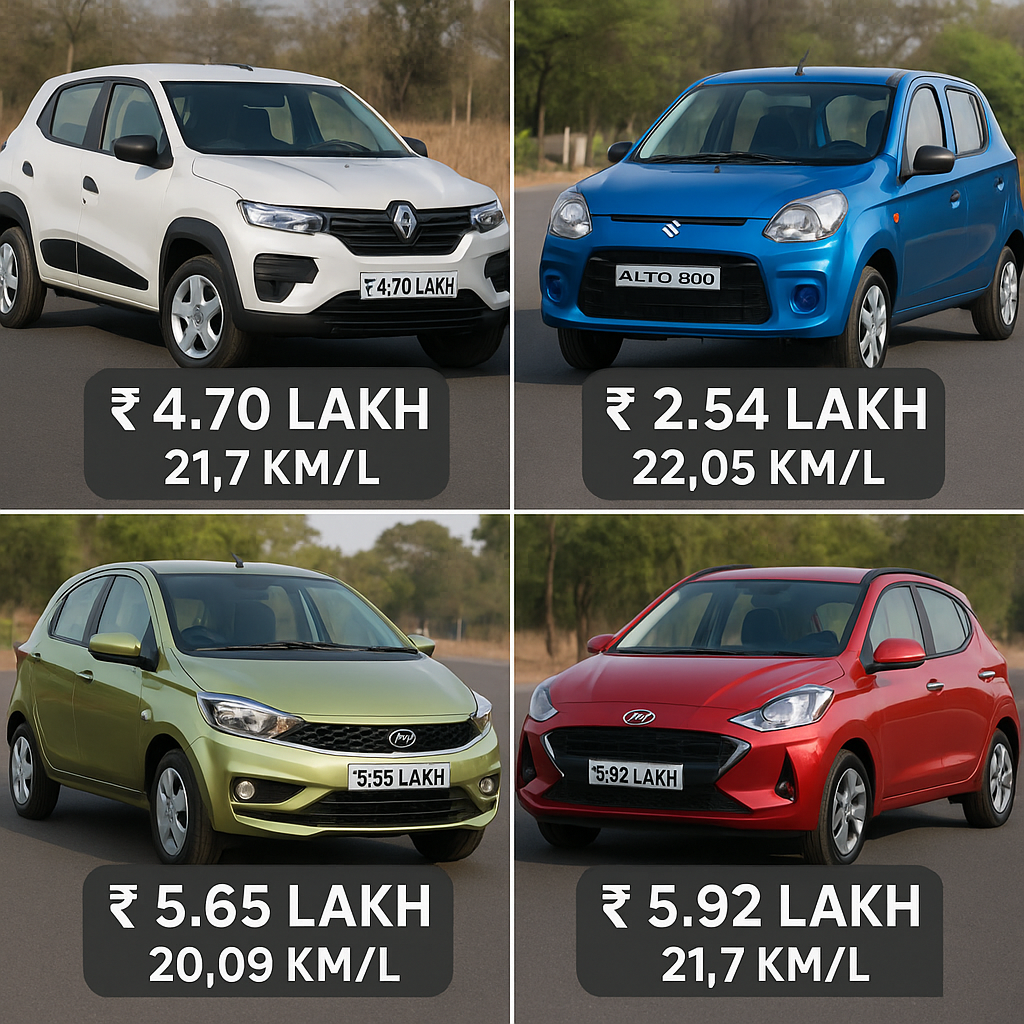
Know GST on EV cars in India – Only 5% GST vs 28% on petrol cars. Learn why govt reduced GST, EV tax benefits, and subsidies for buyers in 2025.
India’s automobile industry is going through a major shift with the rise of electric vehicles (EVs). While petrol and diesel cars have dominated the market for decades, the focus is now shifting toward greener and cleaner mobility solutions. To encourage this transformation, the Indian government has introduced several tax incentives, subsidies, and policy reforms.
One of the most impactful decisions has been reducing the GST (Goods and Services Tax) on EV cars. Unlike traditional vehicles that attract a much higher tax rate, EVs enjoy a comparatively lower GST. But how much GST do you actually pay on an EV, and why has the government kept it so low? Let’s find out.
GST on EV Cars in India – The Current Rate
When you buy a petrol or diesel car in India, you pay 28% GST plus an additional cess of 1% to 22%, depending on the car’s engine size, type, and category (SUV, sedan, hatchback, etc.). This makes conventional cars quite expensive, especially in the mid-to-high-end segment.
On the other hand, if you buy an electric car, you pay only 5% GST.
Why Is GST on EV Cars So Low?
The government’s decision to keep GST at just 5% on EVs is not random. It is a well-planned strategy to promote sustainable mobility. Here are the main reasons:
1. Promoting Green Energy and Reducing Pollution
Air pollution has become a serious concern in most Indian cities. EVs produce zero tailpipe emissions, making them an eco-friendly alternative to petrol and diesel cars. By lowering GST, the government is incentivizing people to shift towards cleaner vehicles.
2. Making EVs More Affordable
One of the biggest challenges for EV adoption is the high upfront cost. Battery technology is still expensive, which makes EVs costlier than similar petrol or diesel cars. By reducing GST to just 5%, the government brings down the final price, making EVs more affordable for the average consumer.
3. Supporting Domestic Manufacturing
India has ambitious plans to become a global EV manufacturing hub. Lower GST, along with schemes like FAME-II (Faster Adoption and Manufacturing of Electric Vehicles), encourages carmakers to invest in the EV sector. This also helps generate employment and reduces dependency on fuel imports.
GST on EV Cars vs. Conventional Cars – A Quick Comparison
| Vehicle Type | GST Rate | Additional Cess | Final Price Impact |
| Petrol/Diesel Cars | 28% | 1% – 22% | Very high on-road cost |
| Hybrid Cars | 28% | 15% | Higher than EVs |
| Electric Vehicles (EVs) | 5% | Nil | Lower on-road price |
Additional Benefits for EV Buyers
Apart from reduced GST, EV car buyers in India enjoy several additional financial benefits:
- Income Tax Deduction on Loans – Under Section 80EEB of the Income Tax Act, individuals can claim up to ₹1.5 lakh deduction on interest paid for EV loans.
- Lower Running Costs – Charging an EV costs far less than refueling a petrol or diesel car. Over a period of years, this leads to significant savings.
- State Subsidies & Incentives – Many states, including Delhi, Maharashtra, and Gujarat, offer additional subsidies, road tax exemptions, and registration fee waivers for EV buyers.
- Maintenance Savings – EVs have fewer moving parts compared to internal combustion engine (ICE) cars, which means lower maintenance costs in the long run.
Challenges Ahead
While the lower GST is a big step in the right direction, EV adoption in India still faces some challenges:
- Limited Charging Infrastructure – Many cities still lack adequate EV charging stations.
- High Battery Cost – Although GST is low, the battery cost remains high, making EVs expensive.
- Range Anxiety – Consumers are still worried about how far an EV can travel on a single charge.
The government, however, is actively working to solve these issues by promoting charging networks, offering subsidies for battery production, and encouraging technological innovation.
The decision to keep GST on EV cars at just 5% shows the government’s strong commitment to making India a greener, cleaner, and more sustainable nation. Compared to the 28% GST plus cess on petrol and diesel cars, EVs clearly have a massive advantage in terms of affordability and long-term savings.
For buyers, this means not only reduced upfront costs but also lower running and maintenance expenses. Combined with subsidies and tax benefits, EVs are quickly becoming a smart and future-proof investment.
As charging infrastructure expands and battery technology improves, the gap between EVs and traditional cars will shrink further. The low GST rate ensures that more people can make the shift toward eco-friendly vehicles, making India’s dream of becoming an EV-first nation closer to reality.


